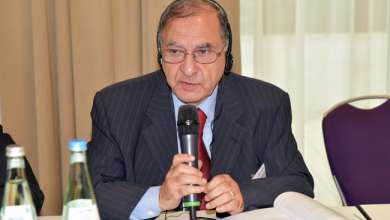The Human Rights Situation in Kashmir: A Reflection on the 75th Anniversary of the UDHR

BY : Faiqa Khalid
As the 75th anniversary of the Universal Declaration of Human Rights (UDHR) approaches, it is imperative to reflect on the human rights situation in Kashmir. This disputed region, caught between India and Pakistan, has been marred by conflict and a long-standing struggle for self-determination. The anniversary of the UDHR serves as a reminder of the principles that should guide the protection and promotion of human rights for all individuals, regardless of their nationality or ethnicity. Kashmir, with its picturesque landscapes and rich cultural heritage, has been a hotbed of tension and violence for decades.
The region has been at the center of a territorial dispute between India and Pakistan since their independence in 1947. The people of Kashmir have suffered the consequences of this unresolved conflict, enduring human rights violations and a lack of political stability. In August 2019, the Indian government, under the leadership of Prime Minister Narendra Modi, revoked the limited autonomy granted to Indian-administered Kashmir. This decision sent shockwaves through the region and further exacerbated the existing grievances of the Kashmiri people. The revocation of autonomy was accompanied by a crackdown on political dissent, leading to the arrest of numerous politicians and activists. Since the revocation of autonomy, political activity in Indian-administered Kashmir has come to a standstill.
The last state elections were held in 2015, and no legislative elections have been announced since then. The absence of a political platform has left the people of Kashmir without a voice, stifling their ability to express their grievances and participate in decision-making processes. The human rights situation in Kashmir has deteriorated significantly in the past two years. The security forces, deployed in the region, have been accused of excessive use of force, resulting in unlawful killings and a high number of injuries. Civil society estimates suggest that up to 145 civilians were killed by security forces between mid-2016 and early 2018. The use of pellet-firing shotguns has led to severe injuries, including partial or complete blindness, among the local population. One of the major challenges in addressing human rights violations in Kashmir is the culture of impunity that prevails in the region.
The Armed Forces (Jammu and Kashmir) Special Powers Act (AFSPA) grants virtual immunity to security forces, hindering the prosecution of those responsible for human rights abuses. This lack of accountability sends a troubling message and perpetuates a cycle of violence and human rights violations. Suppression of civil rights in Kashmir remains a concern. Freedoms of expression, assembly, and association were curtailed, limiting the space for dissent and peaceful protest. Journalists and activists have been harassed and arrested under strict laws such as the Unlawful Activities (Prevention) Act (UAPA). Civil society organizations and human rights defenders were targeted, leading to a crackdown on human rights advocacy in the region. The closure of semi-autonomous commissions, including the National Human Rights Commission, further hampers justice and reconciliation efforts in Kashmir.
Thousands of cases of torture, enforced disappearance, extrajudicial killings, and rape were pending in these committees, leaving victims and their families with no hope of justice. The lack of institutional mechanisms to address these grievances perpetuates a sense of injustice and fuels resentment among Kashmiris. The international community has a responsibility to address the human rights situation in Kashmir. The United Nations, through its human rights mechanisms, should play an active role in monitoring and investigating human rights violations. Establishing a commission of inquiry, as recommended by the United Nations High Commissioner for Human Rights, would be an important step in ensuring accountability and justice for victims of human rights violations in Kashmir.
To achieve lasting peace and stability in Kashmir, it is important to prioritize dialogue and peaceful resolution of disputes. The grievances and aspirations of the Kashmiri people must be addressed through comprehensive and meaningful engagement. All parties, including India, Pakistan and the Kashmiri leadership, should come together to find a politically negotiated solution that respects the human rights and self-determination of Kashmiris. In addition to addressing the political and human rights aspects of the Kashmir conflict, it is important to focus on the economic and social development of the region.
The people of Kashmir are suffering severe economic hardship due to the protracted conflict. Investments in infrastructure, education, healthcare, and job creation can help alleviate poverty and provide opportunities for local populations, thereby contributing to a more stable and prosperous Kashmir.
The 75th anniversary of the Universal Declaration of Human Rights is an opportunity for the international community to reaffirm its commitment to human rights and stand in solidarity with the people of Kashmir.
Governments, civil society organizations, and individuals should use their platforms to raise awareness of the human rights situation in Kashmir and advocate for meaningful action. Through collective efforts, we can translate the principles enshrined in the Universal Declaration of Human Rights into tangible improvements in the lives of the people of Kashmir.
As we mark his 75th anniversary of the Universal Declaration of Human Rights, we must reflect on the ongoing human rights crisis in Kashmir. The deprivation of autonomy, the repression of political life, and widespread human rights violations require urgent attention and action.
The international community must hold those responsible for human rights violations accountable and strive for peaceful resolution of conflicts.
By adhering to the principles of the Universal Declaration of Human Rights, we can strive for a future where the rights and dignity of all people in Kashmir are respected and protected.
The writer is a student of International Relations at International Islamic University, Islamabad and is currently serving as an intern at Kashmir Institute of International Relations.





